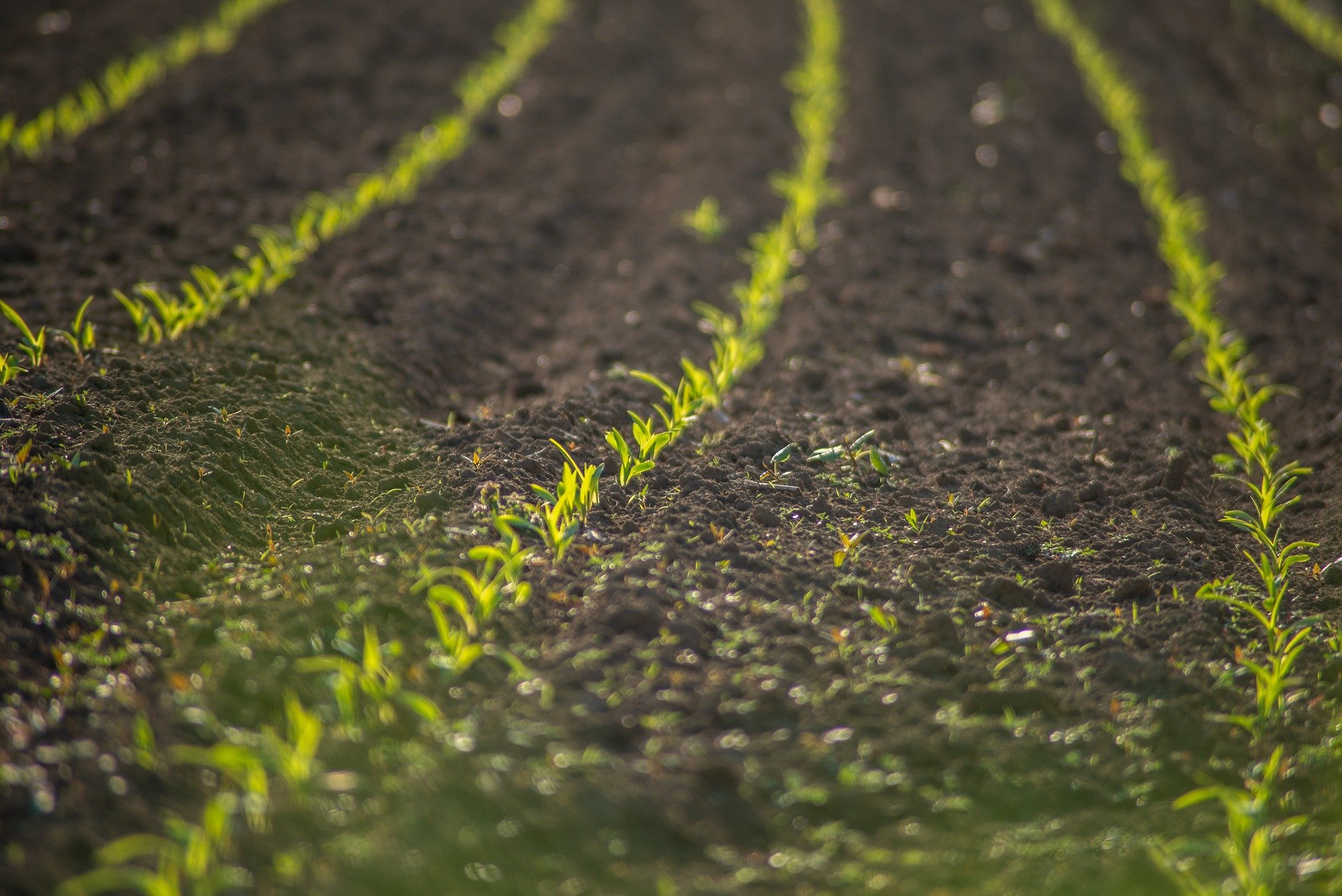
5 Applications of Polyaspartate in Agriculture
5 Applications of Polyaspartate in Agriculture
June 30, 2023
4 minutes
Agronomy
By Clint Hoffmann
Download Free Agronomy Guide5 Applications of Polyaspartate in Agriculture
Polyaspartate is a multifunctional, biodegradable, water-soluble amino acid polymer that has powerful qualities as a soil amendment and promoter of plant growth to increase yield. In addition to boosting the size and health of crops, polyaspartate is also a biodegradable alternative to leading persistent polymers and chelators like polyacrylates and EDTA. Once it has done its job, polyaspartate degrades harmlessly with no residue left in the soil.
With its strong chelating, dispersing, and descaling properties, polyaspartate has multifunctional utility as an environmentally friendly additive in soil agronomy and crop production. Here are five of its most promising applications as related to crop growth and agriculture. More details about each of these areas will be covered in future posts.
1. Improve availability and uptake of soil nutrients
Polyaspartate makes important nutrients more accessible to plants over an extended period of time. Because of its strong chelation properties, polyaspartate is able to keep the nutrients in fertilizers in the root zone, preventing leaching through the soil. While irrigation and rainfall will gradually wash away fertilizer, polyaspartate binds to and holds the material, releasing it slowly as it degrades.
This means improved availability of soil nutrients like nitrogen, phosphorus, potassium, calcium, magnesium, boron, molybdenum, and manganese. With greater availability, plants absorb more of these key nutrients and grow larger and stronger with the same amount of fertilizer.
Polyaspartate treated fertilizers have been shown to increase yield by 4-10% in multiple cropping systems, including rice and wheat.
2. Improve soil health and enhance soil biome
In addition to boosting nutrient uptake for plants, polyaspartate also improves overall soil health and promotes the recovery of stressed plants. It does this by promoting microbial activity. Polyaspartate simultaneously activates the nutrient elements present in the soil and reduces the adverse effects of overfertilization on the environment, keeping fertilizers where they belong.
Many studies have displayed the impact of polyaspartate on soil health, such as its ability to foster microbial diversity and mitigate the effects of heavy metals.
Even highly fertile soil can be severely contaminated with heavy metals like copper and cadmium. One report showed that vegetables under combined Cu+Cd stress increased diameter growth, root activity, and chlorophyll content after polyaspartate soil treatment. The addition of polyaspartate helps to extract heavy metal ions and encourages healthy root development (making roots grow longer and with more root hairs).
3. Improve fertilizer efficiency and utilization rates
Polyaspartate slows down the ability of water to dissolve fertilizer as it moves through the soil column. Because plants can use the fertilizer in the soil more effectively, less ends up wasted and less is needed.
When more water flows through the soil in the rainy season, most of the fertilizer is depleted before the later part of the season. Polyaspartate binds to the nutrients in the fertilizer and holds them in place, slow-releasing them in a more measured fashion as the polymer naturally biodegrades.
A slow release fertilizer including polyaspartate therefore has a higher utilization rate and there is less need to re-fertilize. The positive influence of fertilizers on plant growth can continue throughout the season with less total material needed.
As little as 1% polyaspartate can have a noticeable impact on soil performance and crop yield.
4. Conditioning of hard water prior to addition of other agrochemicals
Hard water can cause trouble in irrigation systems. The chelation ability of polyaspartate improves water quality by removing excess minerals from hard water. Because polyaspartate is a strong chelator for Ca and Mg ions, it binds to these minerals and mitigates the buildup of scale in irrigation pipes. While nutrient uptake is the primary strength of polyaspartate in agriculture, the value of a descaler should not be understated. Polyaspartate in irrigation systems works to preserve valuable equipment in addition to supporting yield increases.
5. Replacement for EDTA, polyacrylates, and other chelators
Polyaspartate is an effective and attractive replacement for EDTA and other common synthetic polymers as an environmentally friendly chelator. This non-persistant polymer improves soil fertility versus polymers like polyacrylate (which is persistent) while also being biodegradable.
At the same time, polyaspartate outperforms other biodegradable chelators, like:
GLDA: Glutamate diacetate
EDDS: Ethylenediamine-N,N'-disuccinic acid
Sodium Citrate
Putting Polyaspartate to Work
Polyaspartate is derived from aspartic acid, which is a natural, essential amino acid. Since the polymer is water soluble, there are versatile ways to apply it to soil or deliver it to crops. Available in both liquid and powder forms, the right method will depend upon the user’s needs and the application.
At least four effective methods can be considered when deploying polyaspartate in an agriculture setting. The first is to mix it directly with fertilizers at the supplier level before they’re bought or sold. Another is to put it into a tumbler and spray it over the crop with a broadcast sprayer. Aerial applications can also be used for foliar application of micronutrients. Finally, it can be co-applied with a liquid fertilizer, and applied through a center-pivot, flood, or greenhouse irrigation system.
This solution has broad market prospects, promoting the absorption of nutrients in vegetables, fruits, grains, flowers, and other crops to increase yield and quality. The bioengineering team at Lygos has made powder and liquid forms of Soltellus™ Brand Polyaspartate available to the agronomy market.
Get in touch with Lygos to learn more about how Soltellus™ can help your bottom line with our environmentally-friendly technology.